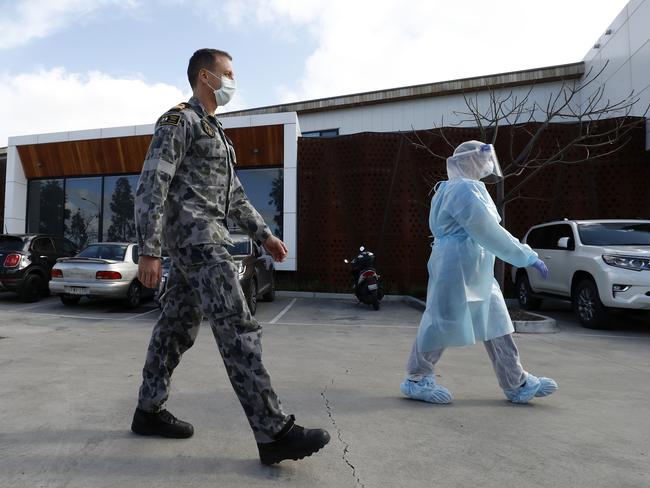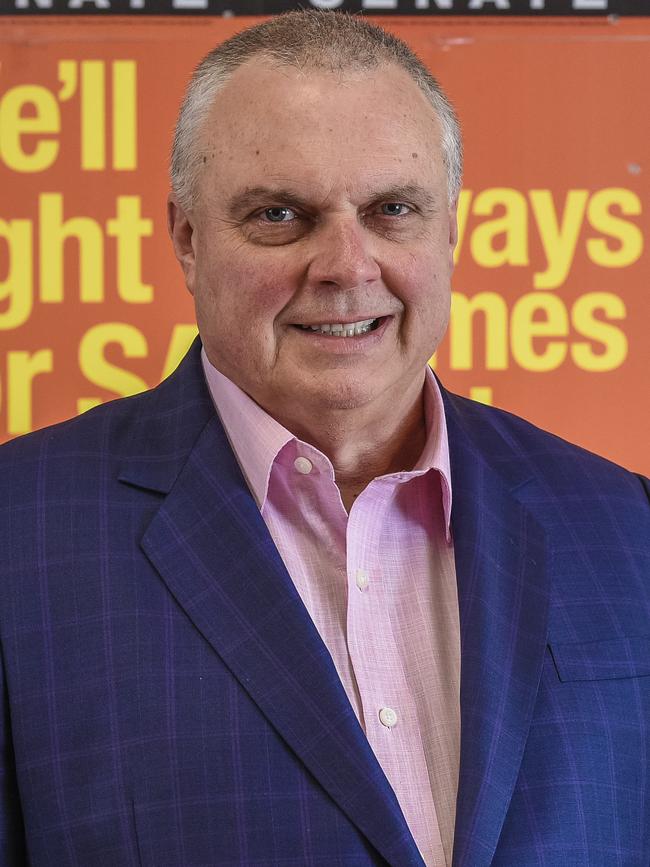Peta Credlin: Pandemic the perfect time to overhaul water, energy and manufacturing policies
In the midst of World War II, the Australian government produced the full-employment white paper which spurred 20 years of unemployment under 2 per cent. Now, COVID-19 is giving politicians a rare chance to tackle policy work that’s languished for too long in the too-hard basket, writes Peta Credlin.
Opinion
Don't miss out on the headlines from Opinion. Followed categories will be added to My News.
- Why is Labor such a mess when dealing with a crisis?
- We have signed away our freedom on false promises
A crisis can make or break governments, just like it can make or break individuals. In a perverse way, some people in government often relish a crisis because it spares them from the need to tackle deep-seated problems, and if they’re not in the eye of the storm, ministers and bureaucrats can use a crisis as an excuse to go slow.
Others, the go-getters, see these times as a great opportunity; new ideas, new people, new ways of fixing big problems where before the system had allowed intransigence to defeat progress.
The question right now is whether there are enough ministers in governments around the country who see COVID-19 as a way to reinvent the policy landscape.

That will determine whether Australia enters a long period of economic recession or whether we attack problems that, for too long, we’ve allowed to hold us back as a country, and rebuild our prosperity.
With official unemployment now over a million, the deficit headed towards $200 billion and debt upwards of a $1 trillion, this virus has made our future economic challenges as daunting as they’ve ever been in our history.
With almost 4 million workers needing government subsidies because almost a million businesses have suffered a serious revenue hit, no one should think that the economy will bounce back the way we might have hoped at the start of this crisis.
Given the calamity in Victoria, which represents about a quarter of the national economy (and last year, 40 per cent of its overall growth), things will be tough.
MORE FROM PETA CREDLIN:
Victoria will drag every state into COVID-19 crisis
Green energy claims are nothing but hot air
And it’s heightened our already worrying structural issues: the fact that 60 per cent of Australian households pay no net tax; that we’ve allowed meaningless training to masquerade as job preparedness; that we’ve undermined small business with regulations and costs; and that despite all our talk, we’re still unable to fix the energy and water crisis in this country that’s
an absolute pre-condition of maintaining our (very high) standard of living.
Until we have a vaccine — or rather, if we ever have a vaccine — we will have to learn to live with this virus. Given this reality, and the costs to date, we now have a very rare window to abandon our policy timidity and use this extraordinary crisis to govern, extraordinarily.
To start with, how about fixing the intractable problems in our water management? If we expect agriculture to once again lift us out of this recession, as it’s done in the past, and provide secure produce supplies, then there has to be secure water. If there can be national agreement on pandemic management, as voters, we should expect nothing less on water.
Energy? It’s a no-brainer that we must make better use of natural advantages — coal, gas, uranium too — but we must decide their role here and not outsource it to unelected UN officials. One thing this crisis has made crystal clear is the urgent need to revive manufacturing in this country and, given our high wages, getting energy back to what it used it be — reliable and affordable — will be key.

Doing more on education must be a priority rather than just throwing more billions into a bad curriculum too focused on fads and not enough on the fundamentals.
None of this needs to be hard, provided we use this crisis to take charge of the agenda and wrest it back from the vested interests with a stake in the status quo — the bureaucrats, left “interest groups”, woke business types or the myriad of other bodies that live off the taxpayer like parasites.
In the midst of World War II, the Australian government produced the full-employment white paper which spurred 20 years of unemployment under 2 per cent, and the British government produced the Beveridge report which led to the NHS.
This weekend is 75 years on since the politicians of that time used their moment in history to change the economic future.
COVID-19 is our time; a rare opportunity for the Prime Minister, his government, and Labor too, to tackle the policy work that as a nation, we’ve thrown into the too hard basket for too long.
Can they do it? They must. Our future depends on it.
POOR RESPONSE TO CARING FOR THE AGED
What saddens me most about this pandemic and the response, most marked in Victoria, is how we seem to regard our aged as expendable.
The idea that citizens, who have lived good lives, supporting their families and contributing to society, are denied beds in a public hospital and left sedated to die in nursing homes should be a wake-up call to a nation that likes to think it’s humane.

After all, isn’t the whole purpose of these lockdowns and the billions spent on our crisis response, all about protecting our most vulnerable? Who is making these decisions to shut out families, to let people die alone, to deny them hospital beds and what amounts to little better than government sanctioned euthanasia, whether they want it or not?
While I understand that some of our elderly will have a care plan that declines heroic interventions at the end of life, not everyone is in this position.
What’s happening in Victoria is a failure of the system and attempts to shift the blame only amplify the fact that no other state is suffering to this degree.
It’s also a sorry reflection on all of us that so many of our public leaders — the organisations, the churches, the community groups — and us, are silent. Some lives are worthy of marches, it seems, but not those who have built this country.


THUMBS UP: The historic normalisation of diplomatic relations between the UAE and Israel last week is good for the region and good for the world.
THUMBS DOWN: Attempts to get ex-Xenophon MPs Rebekha Sharkie and Stirling Griff to join the Coalition in Canberra is a backward move because soft-left careerists are the last thing the Liberals need now.

